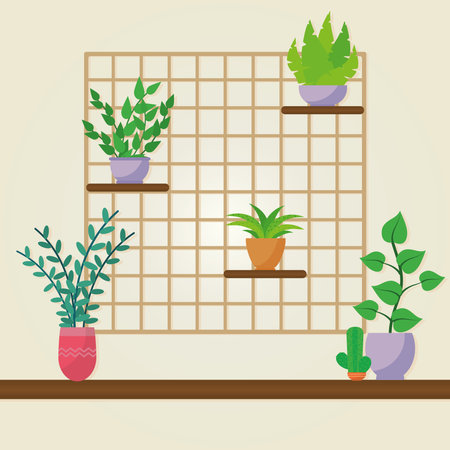1. The Importance of Sustainable Bathroom Flooring
When it comes to designing a bathroom, flooring is a crucial element that impacts both aesthetics and functionality. However, beyond style and durability, choosing sustainable flooring materials can have a significant effect on the environment and your well-being. Understanding these benefits can help you make an informed decision that aligns with your values and lifestyle.
Environmental Impact
Sustainable bathroom flooring helps reduce environmental harm by utilizing materials that are responsibly sourced, recycled, or renewable. Many conventional flooring options contribute to deforestation, excessive energy consumption, and landfill waste. By opting for eco-friendly alternatives, you can lower your carbon footprint and support more sustainable manufacturing practices.
Comparison of Traditional vs. Sustainable Flooring Materials
| Factor | Traditional Flooring | Sustainable Flooring |
|---|---|---|
| Material Sourcing | Often involves deforestation and non-renewable resources | Uses renewable or recycled materials |
| Manufacturing Process | High energy consumption and emissions | Lower carbon footprint with eco-conscious production |
| End-of-Life Disposal | Adds to landfill waste | Biodegradable or recyclable options available |
Durability and Longevity
Sustainability doesnt mean sacrificing durability. Many eco-friendly bathroom flooring options are designed to last just as long—if not longer—than traditional choices. Materials such as bamboo, cork, and recycled tiles offer excellent moisture resistance and longevity while maintaining their aesthetic appeal over time.
Health Benefits
Your choice of flooring can also impact indoor air quality. Some conventional flooring materials contain volatile organic compounds (VOCs) that release harmful chemicals into the air, potentially causing respiratory issues or allergies. Sustainable flooring options often have low or no VOC emissions, creating a healthier living environment for you and your family.
The Health Advantages of Eco-Friendly Flooring
- No Harmful Emissions: Low or zero VOCs improve indoor air quality.
- Mold & Mildew Resistance: Natural materials like cork naturally resist mold growth.
- BPA-Free & Non-Toxic: Many sustainable options avoid toxic adhesives and finishes.
Selecting sustainable bathroom flooring is not only an environmentally responsible decision but also one that enhances the longevity of your space while promoting better health for you and your loved ones. As we explore different eco-friendly materials in the following sections, youll discover stylish options that align with both sustainability and design preferences.
2. Top Eco-Friendly Bathroom Flooring Materials
When choosing sustainable flooring for your bathroom, there are several eco-friendly materials that offer both style and durability. Here are some of the top options:
Bamboo Flooring
Bamboo is a renewable resource that grows quickly, making it a great choice for sustainable flooring. It is highly durable and resistant to moisture when properly sealed, making it ideal for bathrooms.
Benefits of Bamboo Flooring:
- Fast-growing and renewable
- Durable and long-lasting
- Resistant to moisture with proper sealing
- Available in various styles and finishes
Reclaimed Wood Flooring
If you love the warmth and natural beauty of wood, reclaimed wood flooring is an excellent eco-friendly option. Sourced from old buildings, barns, or factories, this material reduces waste and gives new life to high-quality wood.
Benefits of Reclaimed Wood Flooring:
- Sustainable by repurposing existing materials
- Adds unique character and history to your space
- Avoids the need for new tree harvesting
- Treated options can be water-resistant for bathroom use
Cork Flooring
Cork is harvested from the bark of cork oak trees without harming the tree itself, making it a truly renewable resource. It has natural antimicrobial properties and provides a soft, comfortable surface underfoot.
Benefits of Cork Flooring:
- Sustainably harvested without damaging trees
- Naturally antimicrobial and mold-resistant
- Cushioned surface provides comfort
- An excellent insulator for temperature control
Recycled Tile Flooring
If you prefer a tiled look, recycled tiles made from glass, porcelain, or ceramic are a great eco-friendly option. These tiles reduce landfill waste while offering a wide range of colors and patterns.
Benefits of Recycled Tile Flooring:
- Makes use of post-consumer or post-industrial materials
- Diverse design options with various colors and textures
- Easily maintained and long-lasting
- Mold- and moisture-resistant, perfect for bathrooms
Comparison of Eco-Friendly Bathroom Flooring Options
| Flooring Material | Main Benefits | Ideal Use Cases |
|---|---|---|
| Bamboo | Sustainable, durable, moisture-resistant when sealed | Naturally stylish bathrooms with a modern touch |
| Reclaimed Wood | Sustainably sourced, unique appearance, durable with treatment | Bathrooms where a rustic or vintage look is desired |
| Cork | Naturally antimicrobial, cushioned feel, insulating properties | Barefoot-friendly bathrooms needing warmth and comfort |
| Recycled Tile | Sustainable material use, water-resistant, easy to clean | Bathrooms requiring high durability with custom designs |
Selecting the right eco-friendly flooring depends on your style preferences and functional needs. Whether you want the warmth of wood or the durability of tile, these sustainable options help create a beautiful bathroom while reducing environmental impact.

3. Water-Resistant and Durable Green Flooring Choices
When choosing sustainable flooring for your bathroom, it’s important to consider options that can handle moisture while remaining durable over time. Luckily, there are several eco-friendly materials that offer both water resistance and long-lasting performance.
Sealed Cork Flooring
Cork is a natural and renewable material harvested from the bark of cork oak trees. When properly sealed, cork flooring becomes resistant to moisture, making it a great option for bathrooms.
Benefits of Sealed Cork Flooring:
- Eco-Friendly: Harvested without harming the tree, making it a renewable resource.
- Water-Resistant: When sealed correctly, it repels moisture effectively.
- Comfortable Underfoot: Provides a soft and warm surface compared to tile or stone.
- Mold and Mildew Resistant: Naturally resistant to allergens and bacteria.
Recycled Glass Tiles
If you want a stylish and environmentally friendly flooring option, recycled glass tiles are a fantastic choice. Made from post-consumer glass, these tiles offer a sleek and modern look while being highly durable and water-resistant.
Advantages of Recycled Glass Tiles:
- Sustainable Material: Made from recycled glass, reducing landfill waste.
- Highly Water-Resistant: Perfect for wet environments like bathrooms.
- Variety of Colors and Styles: Available in many shades and patterns for unique designs.
- Easy to Clean: Non-porous surface makes maintenance simple.
Linoleum Flooring
Often mistaken for vinyl, linoleum is actually made from natural materials such as linseed oil, cork dust, and wood flour. It is an excellent water-resistant flooring choice for eco-conscious homeowners.
Main Features of Linoleum Flooring:
| Feature | Description |
|---|---|
| Sustainability | Made from biodegradable and renewable materials. |
| Water Resistance | Naturally repels moisture when sealed properly. |
| Lifespan | Can last up to 40 years with proper care. |
| Aesthetic Variety | Available in various colors and patterns to match different styles. |
Selecting the right eco-friendly bathroom flooring ensures durability while supporting sustainability efforts. Whether you prefer the warmth of cork, the sleek look of recycled glass tiles, or the resilience of linoleum, each choice offers an environmentally responsible way to enhance your bathroom space.
4. Stylish and Modern Designs Using Sustainable Materials
Designing a sustainable bathroom doesn’t mean sacrificing style. With eco-friendly flooring options available in a variety of colors, patterns, and textures, you can create a modern and elegant space while being environmentally responsible. Whether you prefer a sleek contemporary look or something more rustic and natural, there’s a sustainable flooring choice to match your vision.
Eco-Friendly Flooring Styles for Every Aesthetic
Sustainable flooring materials come in many stylish designs to suit different interior aesthetics. Here are some popular styles and the best eco-friendly materials for each:
| Style | Recommended Sustainable Flooring |
|---|---|
| Modern Minimalist | Bamboo, Recycled Glass Tiles |
| Rustic Farmhouse | Cork, Reclaimed Wood |
| Industrial Chic | Concrete with Eco-Friendly Sealers |
| Tropical Retreat | Sustainably Sourced Hardwood, Natural Stone |
Bamboo: A Sleek and Versatile Choice
Bamboo is one of the most popular sustainable flooring options due to its durability and aesthetic appeal. Available in various finishes, bamboo can complement both modern and traditional bathroom designs. It is also naturally water-resistant when properly sealed, making it an excellent choice for bathrooms.
Cork: Soft Underfoot with Unique Texture
If you’re looking for a flooring option that is comfortable underfoot, cork is a great eco-friendly alternative. Its unique texture adds character to your bathroom while providing natural insulation against temperature changes. Additionally, cork is antimicrobial and resistant to mold, making it ideal for humid spaces.
Recycled Glass Tiles: Vibrant and Contemporary
For those who love bold colors and intricate designs, recycled glass tiles offer endless possibilities. They come in various shades and patterns that can create a striking mosaic effect or a sleek minimalist look. Plus, they reflect light beautifully, adding brightness to your bathroom space.
Naturally Sealed Concrete: Industrial Elegance
If you prefer an industrial-chic aesthetic, concrete flooring with eco-friendly sealers is a stylish and sustainable option. It provides a clean, modern look while being highly durable and low maintenance. Pair it with warm wood accents or metal fixtures to enhance the contemporary feel of your bathroom.
5. Maintenance and Longevity of Eco-Friendly Flooring
Choosing sustainable bathroom flooring is a great step toward an eco-friendly home, but proper maintenance is essential to ensure its durability and aesthetic appeal over time. Understanding the right care techniques for different materials will help extend their lifespan while keeping your bathroom looking fresh.
General Cleaning Tips for Sustainable Flooring
Regardless of the type of eco-friendly flooring you choose, regular cleaning is key to maintaining its beauty and functionality. Here are some general tips:
- Sweep or vacuum regularly: Prevent dirt and debris from scratching the surface.
- Use a damp mop: Avoid excessive water, as too much moisture can damage certain materials.
- Avoid harsh chemicals: Stick to mild, natural cleaners that won’t degrade the flooring.
- Wipe up spills immediately: Prevent staining and water damage by addressing spills right away.
Maintenance Guide by Flooring Type
Different sustainable flooring materials require specific care techniques. Below is a breakdown of maintenance guidelines based on common eco-friendly bathroom flooring options:
| Flooring Type | Maintenance Tips | Lifespan |
|---|---|---|
| Bamboo | Sweep regularly; use a damp mop with mild soap; avoid standing water. | 20-25 years |
| Cork | Seal every few years; clean with a soft cloth and mild cleaner; avoid excess moisture. | 10-30 years |
| Recycled Tile | Mop with warm water and mild detergent; reseal grout periodically. | 50+ years |
| Sustainable Vinyl | Sweep frequently; clean with non-abrasive cleaner; avoid sharp objects that may scratch. | 10-20 years |
| Naturally Sealed Concrete | Dust mop often; reseal every few years to maintain water resistance. | 50+ years |
Avoiding Common Maintenance Mistakes
Caring for your sustainable flooring properly means avoiding mistakes that could lead to premature wear and tear. Be mindful of these common issues:
- Using too much water: Over-wetting can cause warping or mold growth in materials like bamboo or cork.
- Selecting harsh cleaners: Strong chemicals can erode protective finishes and degrade the material over time.
- Ineffective sealing: Some floors, such as cork or concrete, need periodic resealing to maintain their integrity.
- Lack of protective measures: Use mats in high-moisture areas and felt pads under furniture to prevent scratches or dents.
The Importance of Proper Care for Sustainability
A well-maintained eco-friendly floor not only looks great but also reduces waste by extending its lifespan. By following these simple care tips, you can enjoy a stylish, sustainable bathroom for years while minimizing environmental impact.


